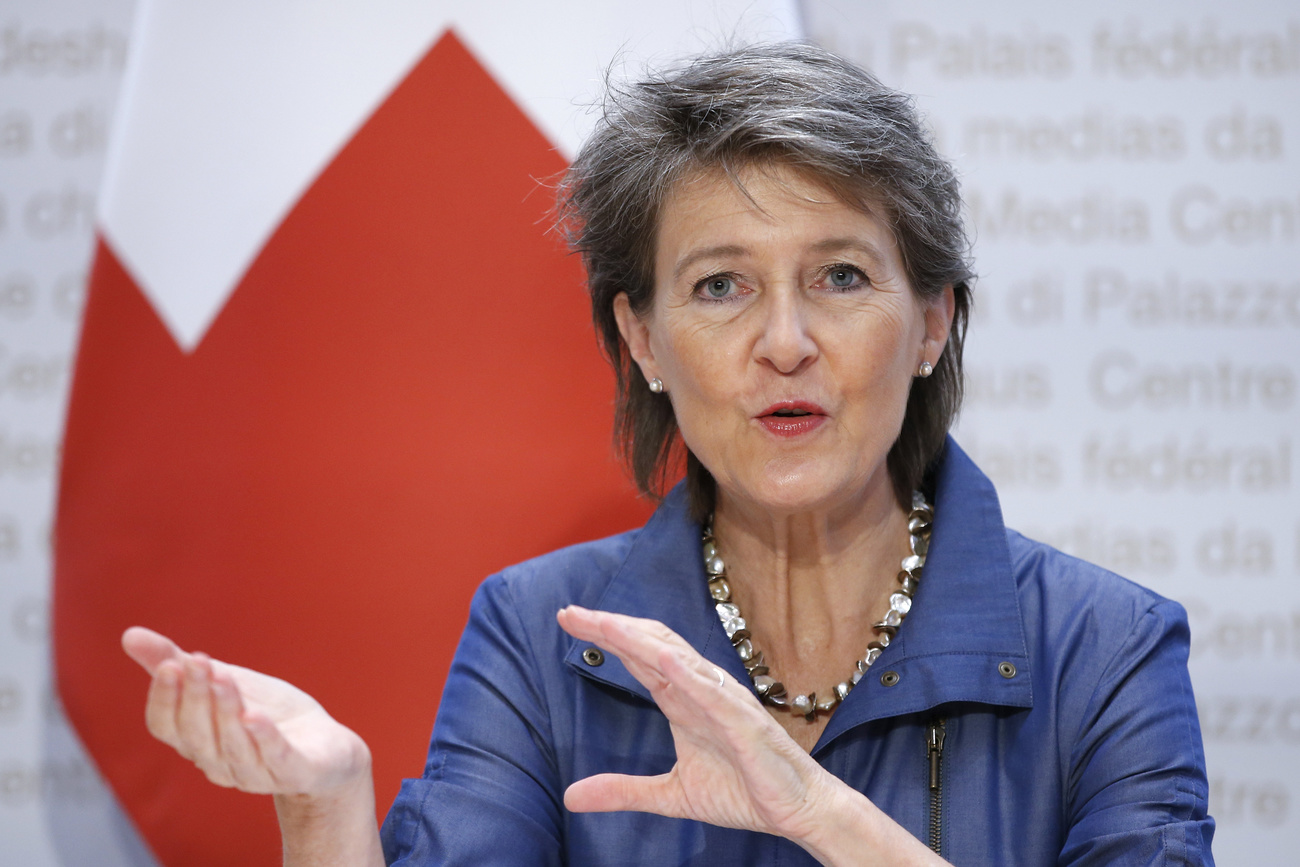
Swiss government outlines details of new CO2 bill

The government plans to present a new revision of the CO2 law before the end of the year which is unlikely to contain any new taxes to fight climate change. In June, 51% of voters rejected an earlier revised CO2 law.
On Friday the Federal Council (executive body) instructed the Federal Department of the Environment (DETEC) to draw up a new draft law to combat climate change.
The new draft legislation, which will cover the period until 2030, will contain a similar international climate target to the previous revision: to reduce the nation’s greenhouse gas emissions to 50% of 1990 levels by 2030. But it has abandoned measures that led to the failure of the previous draft at the ballot box on June 13.
The basis will be the current law on CO2. But the new project should focus on incentives rather than new taxes, the Federal Council said in a statementExternal link on Friday.
Various financial incentives will be created to avoid “untimely investments and to reinforce ongoing developments”, it continued. There will be additional support measures for areas such as the building sector and electric car infrastructure.
The government also wants more companies to be exempted from paying a CO2 tax, provided that they undertake to reduce their own emissions.
Maintaining the target
“These different measures, combined with technological progress and the dynamics experienced by several sectors should make it possible to maintain the reduction target of 50% by 2030,” the government said.
The revision shows that the government is taking into account the population’s wishes, but we need to advance quickly, said Environment Minister Simonetta Sommaruga.
“The population wants to advance in protection of the climate but they don’t want to feel punished by the protection measures,” the minister told reporters in Bern. “The longer we wait the more difficult it becomes.”
Not doing enough
Switzerland’s emissions have declined over the last 30 years, but in recent years the country has repeatedly failed to meet its goals for reducing greenhouse gas emissions, prompting a rise in CO2 taxes.
On June 13 Swiss voters threw out a legal amendment to the CO2 law, including a surcharge on diesel and petrol, as well as a tax hike and a levy on plane tickets.
Last year emissions from fuel, including heating oil and gas, were 31% lower than 1990 levels, according to recent dataExternal link released by the Federal Office for the Environment. This is unchanged from 2019 and falls short of the required 33%.
As a result, a tax on CO2 will increase from CHF96 ($104) to CHF120 per tonne of emissions in 2022.
Under the CO2 regulations in place since 2008, a tax is gradually increased if the reduction target is missed.

In compliance with the JTI standards
More: SWI swissinfo.ch certified by the Journalism Trust Initiative





























You can find an overview of ongoing debates with our journalists here . Please join us!
If you want to start a conversation about a topic raised in this article or want to report factual errors, email us at english@swissinfo.ch.